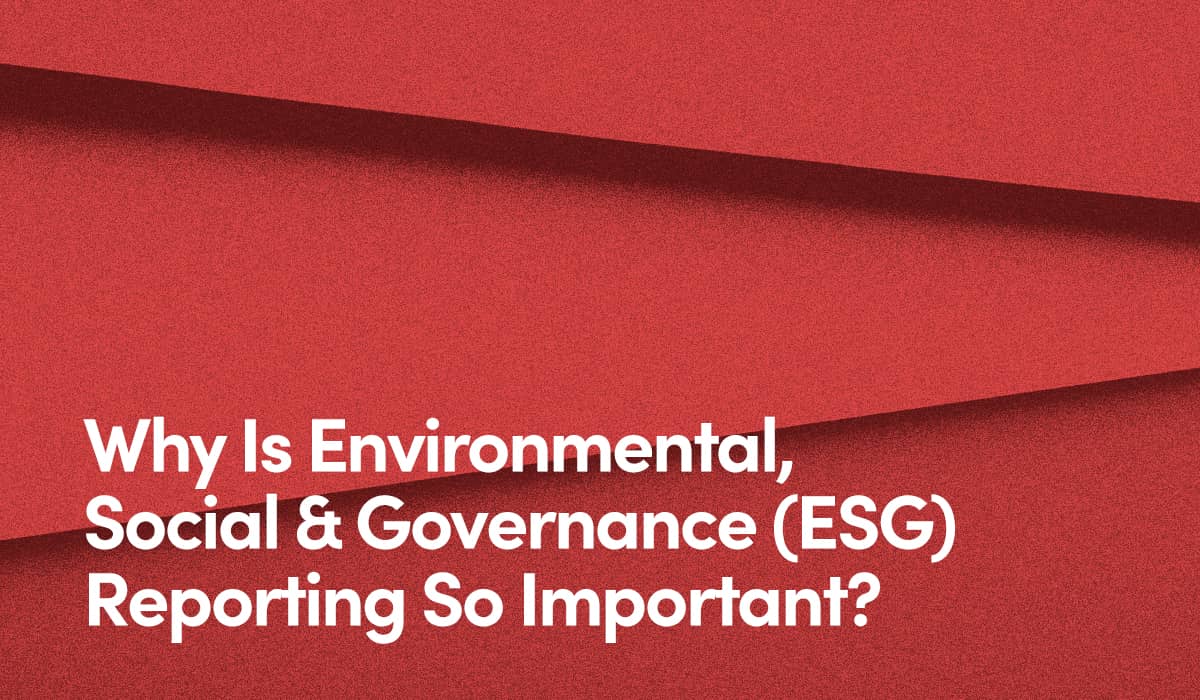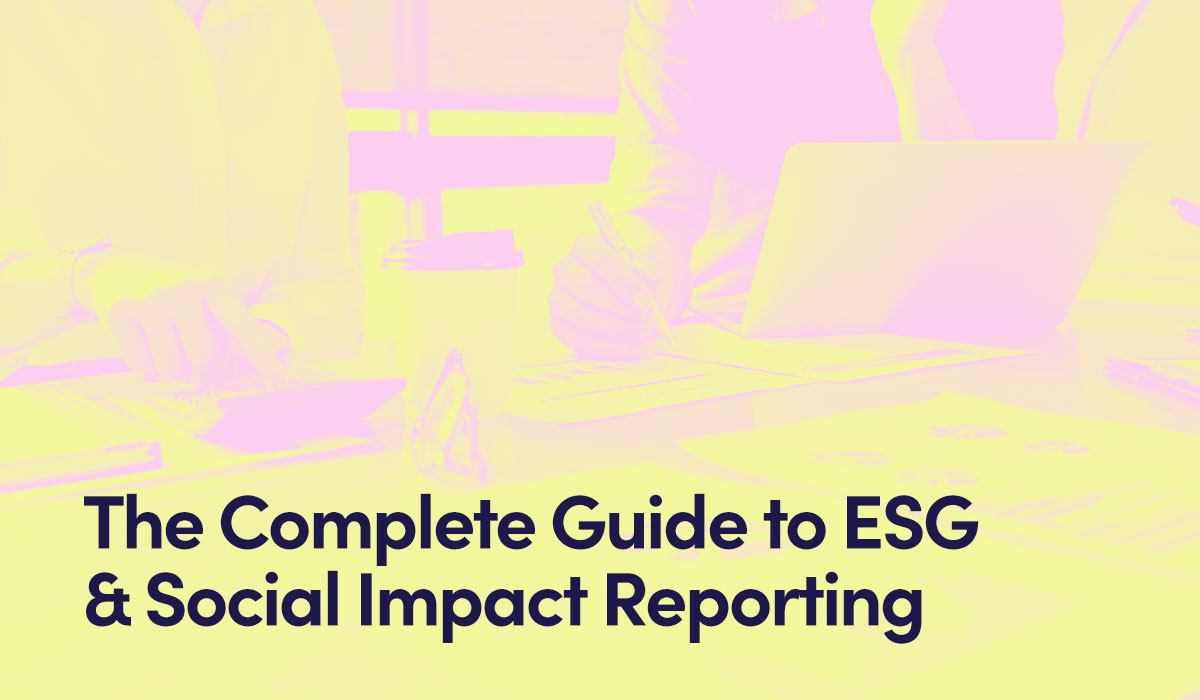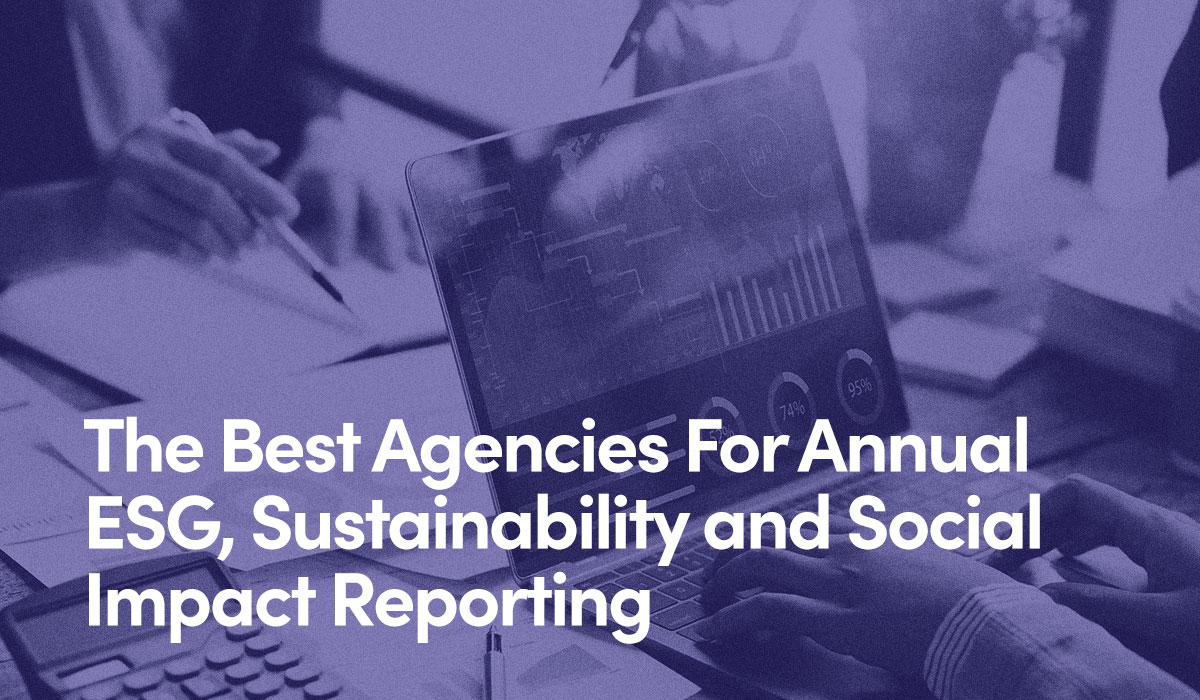Let’s talk a little bit about responsibility. In your early years, various caretakers probably assigned you responsibilities such as taking out the garbage, mowing the lawn, or even caring for a younger sibling or elder family member.
Here’s the thing about responsibility: It never goes away. No matter how far into adulthood you reach or how powerful you become, it just changes shape and magnitude, and becomes all the more crucial.
These days, small- to mid-sized businesses and large corporations shoulder rather hefty responsibilities. From environmental to social to inclusivity in the workplace, there’s a lot to scrutinize. And honestly, that’s the way it should be. Individual citizens can make small alterations to daily practices in service of a number of societal causes—but real, substantial, planet-saving changes are only possible when large companies shift their behavior for the better.
That’s the essence of Environmental, Social, and Governance (ESG) reporting. But, we can dig much deeper than that.
What Is Environmental, Social & Governance (ESG) Reporting?
ESG reporting encompasses a company’s disclosure of data regarding environmental, social, and corporate governance initiatives. An often comprehensive review of a company’s sustainability practices, social policies, and decision making, an ESG report tells investors, consumers, potential employees, and the world at large everything they need to know about an organization and its impact on society.
Let’s break the acronym down even further.
‘E’ Is for Environment
The overall environmental impact of your company, including any impact your practices have on the climate.
- Are you combating climate change?
- Are you offsetting carbon emissions?
- Are you addressing biodiversity, air quality, and water quality?
- Are you responsibly managing waste?
- Are you concerned about deforestation?
- Are you using natural resources to power your supply chain?
- Are you avoiding conducting any animal testing?
- Are you transitioning to alternative energy?
‘S’ Is for Social
The way in which your company interacts with and manages people, various cultures, and other businesses.
- How do you treat your employees?
- How do your employees feel about workplace conditions?
- How do you approach gender, LGBTQ+, BIPOC, and inclusion initiatives?
- How engaged are your employees?
- How do you set up data protection and privacy policies?
- How does your organization interact with the community?
- How do your human rights and labor standards measure up?
‘G’ Is for Governance
The fashion your organization functions internally, specifically regarding accuracy and transparency in decision making and accounting methods.
- What do your internal controls look like?
- What are your internal policies, principles, and procedures?
- What is the composition of your leadership structure?
- What is the makeup of your board of directors?
- What type of compensation is enjoyed by your executives?
- What are your shareholders’ rights?
- What is your policy on lobbying, bribery, and political contributions?
Those three components of ESG reporting provide a clear demonstration and accounting of your internal functions and how seriously you take your position of privilege.
Showcase Your Positive Impact on the World
Want to Connect With Values-Driven Consumers and Investors?
Amplify Your Story With Social Impact Reporting arrow_forwardWhy Is ESG Reporting Important?
In most countries, ESG reporting is an entirely voluntary process. You don’t have to give investors this window into your data, policies and practices—however, there’s growing expectation that such information to be made available.
In the United States, the Securities and Exchange Commission (SEC) recently proposed a fresh set of rules meant to standardize reporting on climate-related risks. The proposal would require companies to quantify climate-related initiatives in their financial statements.
If you are a proactive company that’s focused on the future—of both your organization’s health and the entire world—you will understand the importance of providing ESG data in your annual reporting. Research shows that companies boasting a strong ESG reporting system demonstrate higher returns on investment and display better resiliency during a crisis.
What’s more, the biggest companies in the world are well on their way to making ESG reporting a major part of their organizational operations. The Governance & Accountability Institute reports that as of July 2020, more than 90 percent of companies in the S&P 500 published annual ESG reports.
Companies should seriously consider ESG reporting because it:
Provides More Transparency
ESG reporting outlines your environmental, social, and corporate governance goals. Whether related to climate change or inclusion hiring, a fully realized ESG report shows investors, potential employees, and customers that your company is committed to forward thinking.
Increases Accountability
ESG reporting holds stakeholders, board members, and everyone in the executive suite accountable for their actions. These reports demonstrate to observers that you’re not simply paying lip service when discussing environmental or social justice issues.
Gives Consumers Confidence
The modern-day consumer wants to partner with a brand that is on the right side of history. The average citizen believes that they care about global issues more than the typical corporation does. An ESG report changes the narrative, showing consumers facts and figures proving that you are fully committed to doing what’s right.
Starting Your Social Impact Reporting Journey
Similar to ESG, social impact reporting also allows organizations to be transparent about important issues, such as sustainability, diversity, and corporate policies. There are companies that want to take advantage of the positive benefits of reporting their impact to the world—widening their appeal among consumers, investors, and talent, for example—but may feel constrained by the size and scope of their operations or perceived lack of data, among other reasons. Social impact reporting is a good place to start because it enables organizations to tell their impact story and disclose relevant data in a way that is accessible to stakeholders. With impact reporting becoming more ubiquitous, companies of all sizes can take advantage of such reports to foster transparency—something that has become increasingly important to consumers.
Key Takeaway
When we don’t follow through on responsibilities, our personal world can devolve into chaos. For corporations, the stakes can be even greater—and the general public knows it. That’s why ESG and social impact reporting proves to be a crucial framework for any company operating in modern times.
Whether you’re considering working with a new social impact reporting partner or just starting, we can deliver a compelling impact narrative that clarifies your message, amplifies your mission, and empowers customers, investors, and talent to better engage with your brand. Learn more about our impact reporting capabilities and how we can leverage them to bring your impact story to life.




